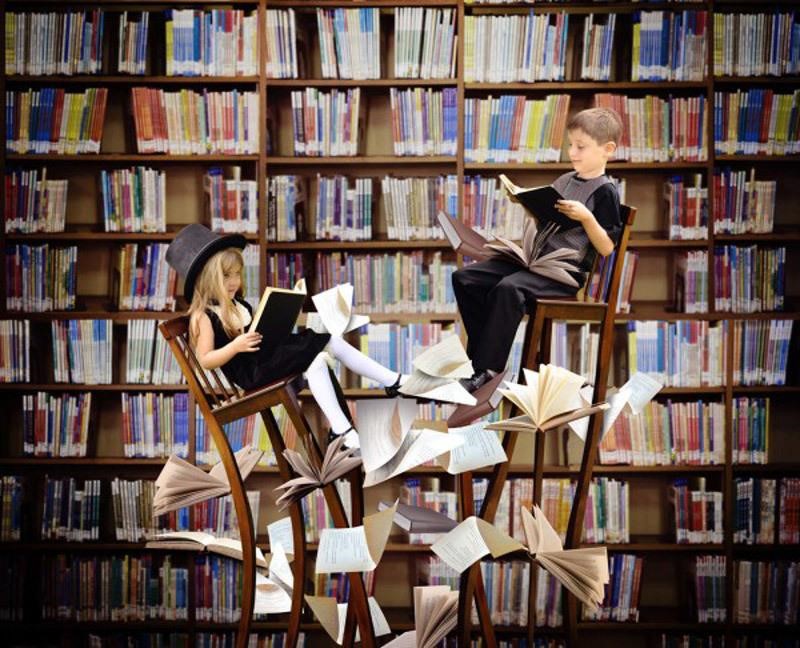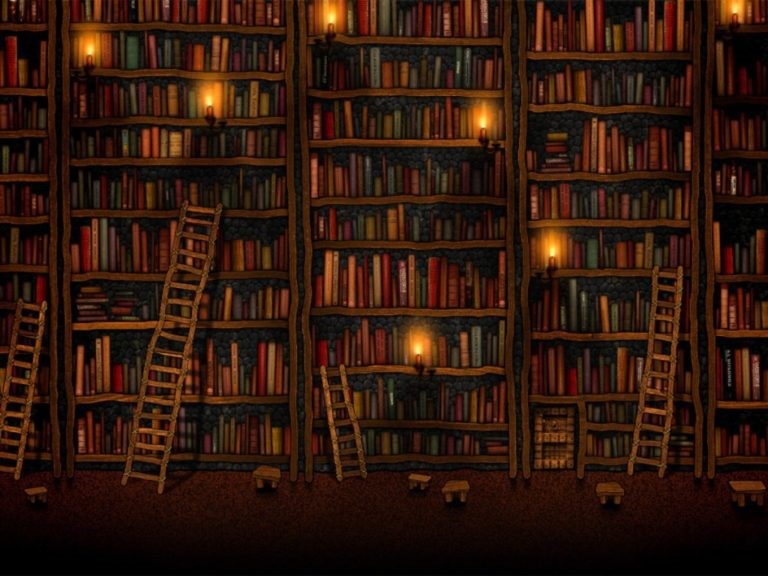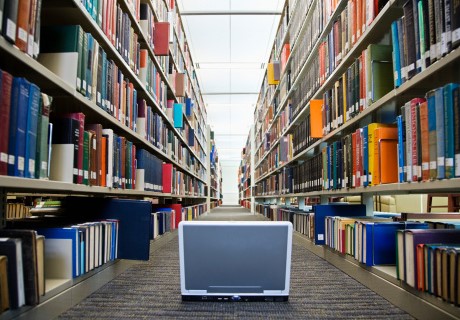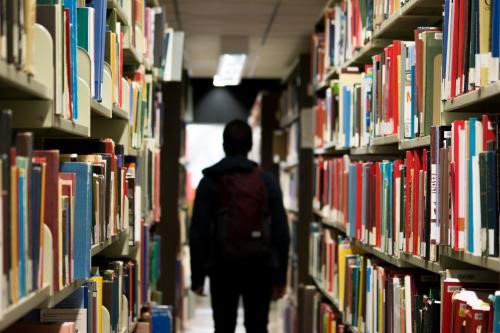Why go to the library
Why visit the library nowadays the library is not just a book depository where we go to find the information we need. In spite of the fact that useful literature can always be found in the Internet, the age of information technology does not stand still, new interactive technologies of information transfer are constantly being created. The library was and will be a kind of centralized information materials, a place where you can learn a lot of interesting and useful.
Stationary library is not just a repository of books. It is a center of creative development, providing conditions for communication between people of different generations. The library constantly carries out reference and bibliographic work, which consists in the selection of information for visitors in paper and electronic media.
The reader has a choice of the most common forms of service. This is a reader’s lending service, which actually means that you can take a book you like home for a certain period of time to read in your home environment. The second form of service gives visitors the opportunity to use the reading room, in which a book can be read in a designated comfortable room without leaving the library.
Most libraries have an extensive collection of books that can be freely accessed. Anyone can borrow books from the library collection. Good libraries are constantly expanding their collections by ordering new and rare titles.
There are many types of libraries, including:
- Public libraries: These libraries are funded by the government and are open to the public. They often have a wide range of materials, including books, magazines, DVDs, and more.
- School libraries: These libraries are found in schools and are used by students and teachers. They may have a focus on educational materials such as textbooks and research materials.
- Academic libraries: These libraries are found at colleges and universities and are used by students, faculty, and researchers. They often have a large collection of scholarly materials such as academic journals and research papers.
- Special libraries: These libraries serve specific groups or organizations, such as law firms, hospitals, or government agencies. They may have a focus on materials related to their specific field or industry.
- Digital libraries: These libraries are online collections of electronic materials, such as ebooks, articles, and videos. They may be hosted by a physical library or be a standalone resource.
- Private libraries: These libraries are owned by individuals or organizations and are not open to the public. They may contain a personal collection of books and other materials or be used for research purposes.
What benefits a visit to a library brings
Inquisitiveness and a longing for knowledge are inborn in people since childhood. Developing intellectually and physically, the teenager feels a strong information hunger. Not everyone can understand what kind of information he needs for leisure, which genre of literature is more to his taste. Sometimes in order to understand it, you have to superficially study several literary sources. The library provides unlimited opportunities for this. The process of finding the right book can and should be a pleasure. Turning the pages, a person begins to comprehend what information he or she needs. The liked book is taken home, where in a relaxed atmosphere read, then reread especially favorite moments, re-experiencing the fate of the characters of the book.
When writing a thesis or term paper, it is easier and more convenient for students to turn to the library’s services. It is not always possible to find exactly the information they need on the Internet. At the stage of research preparation the student, due to the lack of this or that information on the topic, various questions arise.
The newest information
A library can provide any kind of information, including material from recent, recently published sources that have not yet appeared on the Internet.
This fact serves as a kind of guarantee of the uniqueness of the thesis, written independently after studying several literary sources. In addition, when writing thesis undeniable value of live communication with library staff, real people who by virtue of their life experience and duty can throw up interesting material.
Benefit for the child
Benefits for the childThe unsatisfied curiosity of the child in the modern world leads to the fact that sooner or later the child begins to receive information necessary for the development of television and the Internet. Meanwhile, not fully studied, what harm to the body can cause electromagnetic radiation from working electrical appliances. It has been scientifically proven that prolonged exposure to the computer increases the fatigue of the child and has a depressing effect on the fragile psyche. As a result, falls performance, the child looks pale and lethargic. Parents begin to think about why they should go to the library, when the child begins to have problems with health.
Once they decide to enroll their child in a subscription to the library, they help him grow and develop spiritually and intellectually. In addition, within the walls of the institution child is shielded from harmful electromagnetic radiation. The library develops communication skills, which are underdeveloped in the modern generation, limited by the information space of cell phones and the Internet. Within the walls of the institution are constantly held interesting exhibitions, intellectual games, taking part in which the child learns to develop communication skills.

The benefits of visiting the library
It is impossible not to appreciate the benefits that library visitors receive. The modern library system has undergone significant changes over the past decades. Today, the library strives to be interesting and useful to its visitors. There are at least five reasons why a visit to the library would be beneficial to someone of any age.
Space for scholarly work
Providing space for work and scholarly activities. The library has the necessary facilities for a full-fledged research activity. Exhibitions and conferences, presentations and creative evenings can be held in the reading room.
Help with personal fulfillment
The library helps a person become aware of his or her spiritual self. As the reader studies the material, he/she exchanges ideas with other readers by participating in creative evenings and workshops. Spiritually enriched, they gain faith in themselves, self-improvement and self-esteem.
Free Access to Information
The library is ready to help anyone regardless of nationality, gender, place of residence, religion and way of life. As the most accessible and stable source of information, the institution operates on a schedule that is convenient for visits.
Meeting your communication needs
Being at home within four walls, a person feels the need for live human communication. The library gives them that opportunity. After reading a book they come back to share what they have read with the librarian and the people around them.

How to use the library
How to use the libraryWhether you need information or not, when you visit the library, you should know how to use the library so that you can get the material you need quickly and easily. If in-depth study of a scholarly source is planned for the future, it is advisable to arrange for a loan that allows you to take books home with you for a fixed period of time and then return them later. Common information sources in the library are always freely available on the shelves. Particularly valuable items are kept in the book depository, which can be accessed after making an advance order from the catalog.
If you need material for your research it is worthwhile to contact the city central library, which has a wide collection. The central library maintains connections with major library systems in other cities in the capital. If you need a book that is not available, you can always order it from the central library.
Why Libraries are Needed in the 21st Century
The word “library” means “book repository” in Latin. Libraries are also called repositories of knowledge.So why do we need libraries today. When invented the Internet and there is information about electronic books, a variety of sites, and books that are easy to buy in stores, but few people can buy a book in stores, as costly, but in the library of manuscripts are free. If you read a paper book reading technique becomes much faster, improves memory, tactile communication with the book is important to this day. In the countries there are rural areas where there is no internet, and for such small areas the library is essential.

Libraries also function as an arena for a variety of free activities, free lectures, computer courses or for some festive events, and libraries employ advisers who can help you find books with relevant information. The human race has not yet invented another way to store manuscripts than in a library, so as long as people need knowledge book depositories will live.


